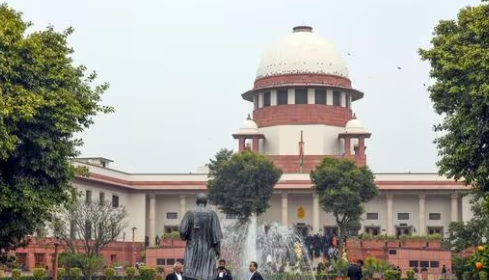The Supreme Court of India has shifted the blame for the rampant growth of unauthorised colonies from solely upon private developers to the government, emphasizing the latter’s failure in effective land management. The verdict, delivered by a bench of justices, underscores a critical aspect of urban planning and governance, sparking debates across the nation.
The ruling comes in response to a petition filed by a group of concerned citizens, alleging unchecked urban sprawl leading to environmental degradation and infrastructural strain. The apex court’s decision departs from the conventional narrative, which often holds private entities accountable for unauthorised constructions.
Chief Justice, in his remarks, pointed out glaring inadequacies in the government’s land management policies, citing a lack of proactive measures to curb the proliferation of unauthorised colonies. He emphasized that the state’s failure to enforce regulations and monitor land transactions has contributed significantly to the unchecked expansion of such settlements.
The ruling has far-reaching implications, particularly in regions grappling with burgeoning urban populations and limited resources. It serves as a wake-up call for authorities to reassess their approach towards urban planning and development, placing greater emphasis on regulatory compliance and sustainable land management practices.
Government officials, while acknowledging the court’s verdict, have pledged to undertake comprehensive reforms to address the root causes of unauthorised colony proliferation. They have assured the public of stringent enforcement of existing regulations and the formulation of new policies to curb illegal constructions and promote planned urban growth.
However, critics remain sceptical, questioning the government’s commitment to effecting tangible change in the face of entrenched bureaucratic inefficiencies and vested interests. They argue that without meaningful reforms and stringent enforcement mechanisms, the ruling may fail to translate into concrete action on the ground.
The verdict also underscores the need for greater public awareness and participation in urban governance processes. Citizens, as stakeholders in the development of their communities, must actively engage with local authorities to ensure transparency and accountability in land management practices.
As the nation grapples with the challenges of rapid urbanization, the Supreme Court’s ruling serves as a timely reminder of the collective responsibility shared by the government and the citizenry in shaping sustainable and inclusive urban environments.








 India
India












